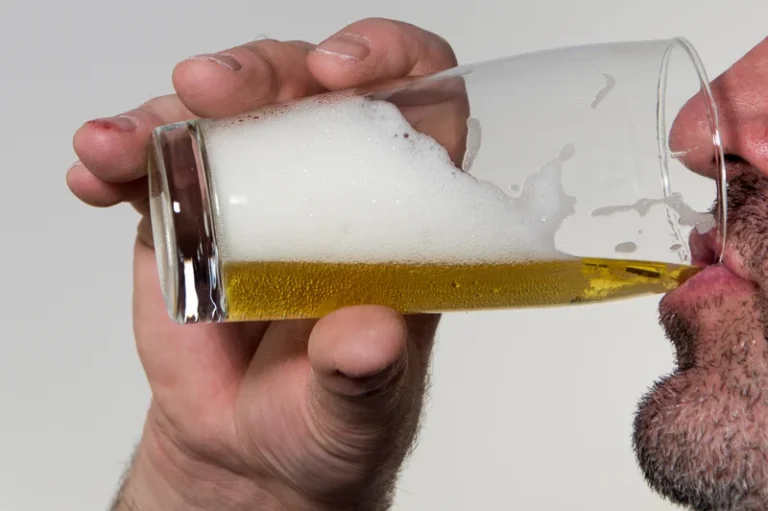
An individual may also need assistive technology and other modifications to help them with everyday tasks. The most distinguishing symptom is confabulation (fabrication) where the person makes up detailed, believable stories about experiences or situations to cover gaps in memory. While drinking may have started out feeling good, tolerance builds over time, and you eventually drink to avoid feeling bad. Alcohol-related dementia can cause problems with memory, learning, judgment, and other cognitive skills.
Alzheimer’s Society dementia support line
Excessive alcohol use can cause damage to the brain which can lead to the development of dementia. To reduce this risk, it is recommended to follow guidelines around safe levels of alcohol consumption or to heroin addiction engage in treatment for alcohol use disorder if you are concerned about the quantity you consume. A large-scale study that followed participants for 27 years found moderate alcohol consumption — defined as one to two drinks a few days a week — didn’t have an increased risk of dementia. Additionally, many older people also experience a slow degeneration of the cells in the hippocampus.
How Is Alcoholic Dementia Diagnosed?

Alcohol-related brain damage (ARBD) is a brain disorder which covers several different conditions including Wernicke-Korsakoff syndrome and alcohol-related dementia. Unlike alcoholic dementia, Alzheimer’s disease worsens with time without any potential for reversal. Coping with alcoholic dementia can be difficult for a person who is experiencing it, as well as for their loved ones.
- Preventive Services Task Force, current estimates are that fewer than 50% of people who visit primary care providers for alcohol-related issues are asked about the problem.
- Table 1 presents details regarding the literature searches conducted in preparation for this review.
- Severe alcoholism over many years also makes the problem drinker significantly more likely to experience the cognitive, memory, and social difficulties that all forms of dementia entail.
- In total, more than 5,000 articles were considered; approximately 400 are referenced herein (i.e., only articles directly related to search terms were included).
- They may simply be taking their medications as prescribed or drinking the same amount of alcohol they always have, but as people age, the body metabolizes these substances differently.
Support for carers, friends and family

If you’ve ever wondered whether alcohol can cause dementia, the answer is yes. In some instances of heavy drinking, it can lead to alcohol-induced dementia. Also can alcoholism cause dementia known as alcohol-related dementia, the condition is considered a type of cognitive impairment or brain damage that occurs as a result of long-term heavy alcohol consumption, Dr. Robins says. Table 1 presents details regarding the literature searches conducted in preparation for this review.
- An individual may also need assistive technology and other modifications to help them with everyday tasks.
- Anything above 14 units per week has been found to increase the risk of dementia, alcohol-related brain damage, cancer, cardiovascular disease, and stroke 910.
- Their metabolism also slows down, so the alcohol stays in their system for longer.
Family members can provide emotional support, encourage medical evaluation, promote addiction treatment, create a safe home environment, and seek professional guidance to manage the challenges of caregiving. The progression of alcohol-related cognitive decline typically follows a pattern, starting with mild symptoms that worsen over time if untreated. Some of the common symptoms of alcohol-related ‘dementia’ may make it harder for a person to take part in an alcohol treatment programme. For example, if the person stops drinking alcohol, takes high doses of thiamine and starts eating a balanced diet. However, if the person keeps drinking alcohol and doesn’t eat well, alcohol-related ‘dementia’ is very likely to get worse. A person with alcohol-related ‘dementia’ may be unsteady on their feet and more likely to fall over – even when they are sober.
How does alcohol affect the brain?

Different countries have slightly differing guidelines on safe alcohol consumption, but it is generally considered that up to 14 units per week is a safe quantity. Anything above 14 units per week has been found to increase the risk of dementia, alcohol-related brain damage, cancer, cardiovascular disease, and stroke 910. Yes, alcoholic dementia is relatively reversible, decidedly in its early stages. Alcohol-related dementia with changes in mental status, memory loss, and personality may be the consequence of longstanding alcohol consumption. However, if you catch the signs early, it is possible to reverse some of the disease process with nutrition therapy and abstinence from alcohol.

Alzheimer’s May Damage The Brain In Two Distinct Phases: Study
Experts recommend that screeners check anyone with memory loss for alcohol use. Korsakoff syndrome causes confabulation, memory loss, and gait abnormalities. Prompt treatment with thiamine (vitamin B1) for people with Wernicke encephalopathy can potentially prevent or lessen the development of Wernicke-Korsakoff syndrome. However, vitamin B1 treatment rarely improves the loss of memory that takes place once Korsakoff psychosis has developed. A doctor will ask a patient questions to determine whether their cognitive impairments result in disturbances to their daily functioning. While the statistics can be intimidating, try to remember that they don’t determine your journey with ARD.
Rodent models of AUD and Alzheimer’s disease
Dealing with all these issues is important for helping the person to stay alcohol-free, and to reduce the symptoms of alcohol-related ‘dementia’. Sadly, there is no proven way to treat Alzheimer’s type of dementia once it takes hold. However, as tragic as it can appear to be, people with alcohol-related brain disorders can experience substantial improvement in their bodily and cognitive health. Of course, this can only happen if the individual receives the necessary support and abstains from alcohol. At the very least, their condition is not likely to get any worse if these factors are in place. A 2016 study found that heavy drinking, equating to eight or more drinks per week, and drinking liquor increased cognitive decline among people with AD.
Alcohol-related brain damage (ARBD): what is it and who gets it?
- People may have these accumulated risks, but they may have genetic or environmental factors that have a protective effect, and they never experience cognitive decline related to alcohol use.
- For example, someone with depression-driven pseudodementia typically has insight into their impairment.
- This damage leads to poorer communication between areas of the brain and impaired cognitive function.
We ask patients to complete a standardized set of tasks that every adult, regardless of their age, is expected to be able to perform with ease. This measure is called the Montreal Cognitive Assessment (MoCA) and the maximum score is 30. Early signs include memory lapses, difficulty concentrating, poor coordination, irritability, and https://ecosoberhouse.com/ struggles with daily tasks.

If caught early enough, patients with the more general type of ARD can significantly improve their condition by quitting alcohol and eating a balanced diet. The life expectancy of people with ARD varies, and more research is needed in this area. This makes alcohol-related dementia easy to hide for some people, and difficult to diagnose at times.